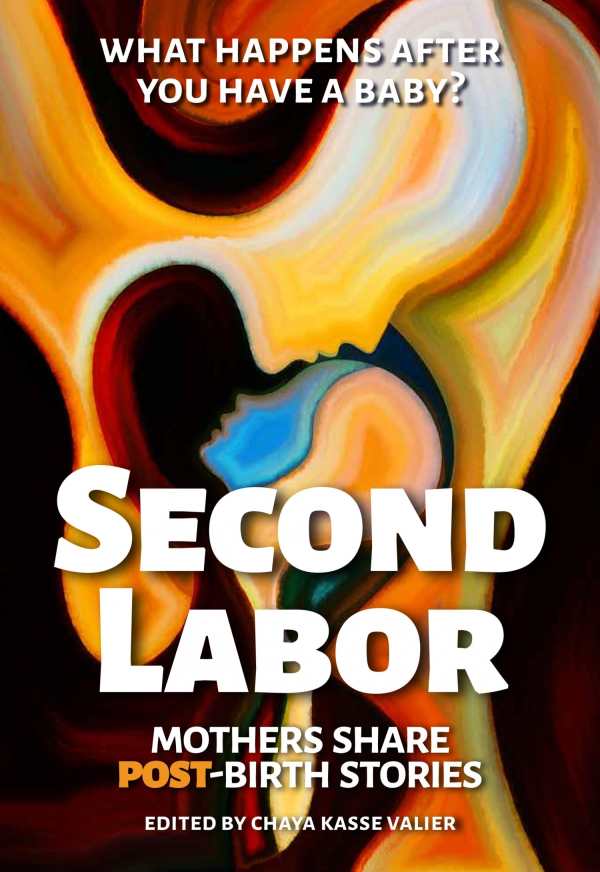Second Labor
Mothers Share Post-Birth Stories
New mothers reclaim their power by honestly telling their stories in this essay collection.
There are plenty of parenting guides that cover pregnancy, birth, and childcare, but few portray the fourth trimester. Chaya Kasse Valier’s anthology, Second Labor: Mothers Share Post-Birth Stories, adds a valuable note to a neglected conversation. This uplifting, raw collection sheds light on challenges while also portraying soulful resilience.
The book’s strength is in its self-reporting, which allows an honest look at life with a newborn. At the same time, the intimate approach becomes a drawback when personal details don’t transcend their specific circumstances. Often, the writing becomes an instrument for retrospective clarity and healing, particularly when it comes to reconciling what women envisioned for themselves versus what took place. As such, there are lengthy reflections on birth stories, ranging from natural birth to emergency C-sections to adoption, and how women eventually make peace with aspects that were beyond their control.
Written by English-speakers who live in the West—where postpartum help from extended family is not always available—these brief accounts reveal isolation, joy, and struggle without the immersive quality of full essays. Practical problems, such as sleep deprivation and nursing difficulties, top the list for issues that spark emotion. Subtler changes turn more insightful; for example, navigating questions of identity. An instance of postpartum depression is recounted with the unsettling realization that almost no one around the mother noticed.
As with any anthology, what’s left out is as noteworthy as what did make the cut. Few essays touch on the radical shifts a child introduces to a marriage. Other postpartum issues—such as body image—are glanced at through passing mentions of scars. Single motherhood is represented by a woman whose economic means permit it. A teenage mother is surrounded by relatives who make the transition easier. All of the mothers possess at least a minimum safety net. While the voices featured may not provide a thorough cross section, a too-brief conclusion does provide a few extra resources for help.
It’s the unusual experiences that end up being most powerful: the mother of a stillborn baby describes the immediate days afterward, capturing the fear of being mistakenly congratulated and doing everything possible to forewarn others. A mother of a child with Down syndrome accepts a wise note of advice that helps her to reframe her view. In a searing admission, a corporate professional admits that the hardship of caring for her first child deterred her from having another. Particular as each of these scenarios is, they all provide evidence of women knowing themselves well enough to know when to listen, and what to listen to.
Second Labor shows how the act of retelling empowers the storytellers. For readers, wisdom is gleaned between the lines.
Reviewed by
Karen Rigby
Disclosure: This article is not an endorsement, but a review. The publisher of this book provided free copies of the book and paid a small fee to have their book reviewed by a professional reviewer. Foreword Reviews and Clarion Reviews make no guarantee that the publisher will receive a positive review. Foreword Magazine, Inc. is disclosing this in accordance with the Federal Trade Commission’s 16 CFR, Part 255.

